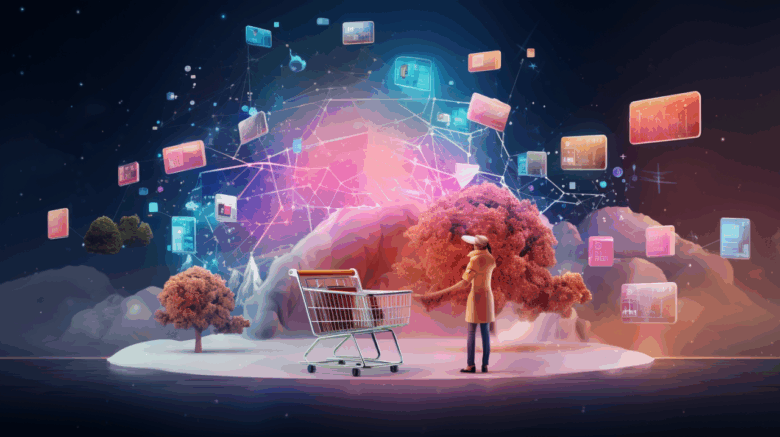Many consumer-facing companies employ artificial intelligence (AI) systems to enhance customer experiences. From personalized product recommendations to real-time inventory control, these solutions provide numerous benefits both to customers and businesses alike. NLP AI chatbots can provide instantaneous responses to customer queries without incurring the expenses associated with human resources, while generative AI tools make product customization effortless, increasing conversion rates at retailers like TFG.
1. Personalized Recommendations
Artificial intelligence (AI) offers customers an enhanced browsing experience tailored to their unique tastes and preferences, increasing customer satisfaction levels while building long-term loyalty. By employing data-driven personalization strategies, AI creates an interactive browsing experience tailored specifically for each customer, thus building long-term satisfaction levels and loyalty among them.
Personalized recommendations also increase conversion rates by helping businesses unlock new revenue streams through cross-selling and upselling. AI-powered tools analyze customer data and behavior to pinpoint relevant products for each user, making each recommendation highly personalized and compelling. AI shopping may appear intuitive to end users, yet every recommendation comes from an intricate web of algorithms working behind the scenes.
2. Real-Time Inventory Management
Real-time inventory management gives brands full visibility of products throughout their supply chains, giving them greater control of costs and waste reduction. For instance, clothing retailers can utilize AI to predict demand for winter coats months in advance and stock enough sizes in inventory so as to maximize sales without incurring markdown costs.
Transparency also assists retailers in effectively managing seasonal and promotional sales. If there’s an unexpected spike in return rates during a sale, an AI system can identify its causes before creating efficient return logistics routes that return items faster to shelves.
3. Enhanced Search
Artificial intelligence provides sophisticated search capabilities that go beyond keywords to deliver contextual and meaning-based search results, thus increasing merchandising efficiency while decreasing customer support agent search time by 30-50%. AI can identify related products such as luggage, carry-ons, and weekenders when someone searches “suitcase.” This saves customers time while improving customer experience.
AI can also assist customers at checkout by analyzing product and purchasing data to provide accurate answers to their inquiries, streamlining the checkout process while simultaneously increasing conversion rates. This ensures an optimal checkout process and increases retention and conversion rates.
4. Conversion Rate Optimization
Imagine hosting a dinner party where each guest’s preferences could be read instantly – that is what AI provides with conversion rate optimization (CRO), enabling businesses to customize user experiences at every turn using advanced data analytics and predictive modeling techniques.
Brands can use this technique to reduce cart abandonment rates by showing customers personalized notifications, such as restocking or new releases, when they visit, as well as simplify the checkout process by suggesting autofill fields or providing helpful hints during their visit. AI tools have the capacity to run A/B tests automatically, personalizing page elements and creating targeted content faster than human teams can, thereby helping achieve measurable improvements and maintain competitive edges.
5. Fraud Prevention
Artificial intelligence provides fraud prevention services by analyzing user behavior and recognizing anomalies that may indicate fraudulent activity. AI can monitor login attempts or purchase patterns to detect spikes that could indicate fraud, allowing businesses to take immediate steps to minimize risks.
Retailers rely on AI to optimize product listings, using image recognition and text analysis for accurate product listings, making the shopping experience smoother than ever before. AI also assists with inventory management by finding shorter return-logistics pathways for specific returns, putting more products back onto shelves instead of landfills. Generative AI takes personalization one step further by using customer data to tailor marketing messages to each customer individually, increasing long-term loyalty and improving retention rates.
6. Automation
AI utilizes NLP technology to automate email responses, providing customers with timely and accurate order confirmations, shipping status updates, and resolution summaries – increasing transparency while relieving support agents of some administrative work. AI can also improve checkout experiences by offering product recommendations and virtual try-ons – this helps decrease cart abandonment/return rates as well as strengthen brand loyalty.
AI can combine with e-commerce analytics to dynamically adjust product prices based on supply and demand, keeping prices competitive while meeting customer expectations, while simultaneously increasing revenue. This is just one way AI enhances e-commerce.
7. Chatbots
Advanced AI chatbots go beyond simple rule-based bots that only respond to predetermined queries; they’re contextually aware and provide personalized experiences. Furthermore, they can answer more complex queries by connecting with backend systems.
AI can enhance checkout experiences by answering queries about product and shipping information, leading to higher conversion rates. In addition, AI offers seamless shopping by applying discounts automatically across channels, further streamlining the shopping process for seamless purchasing experiences. GenAI can even facilitate virtual try-ons for users by superimposing products onto images in real time, helping reduce product return rates and strengthen customer relationships through deep learning and computer vision capabilities.
8. Artificial Intelligence in Marketing
AI offers businesses valuable marketing insights that can help them target audiences more efficiently. However, marketers must create an onboarding process for this technology and regularly review AI-driven insights so they can adapt campaigns as necessary.
AI algorithms analyze voluminous amounts of customer data, such as purchase history and browsing behavior, in order to provide highly tailored product recommendations for their target customers – specifically Gen Z shoppers who report being highly satisfied by personalized online shopping experiences. Many retailers use AI to automate pricing strategy, analyzing past sales data and market demand signals to optimize prices in real time and remain competitive and meet their business objectives.
9. Analytics
AI allows retailers to provide customers with tailored shopping experiences by personalizing voice search results, hyper-targeted ads, or offering AR shopping experiences that meet individual customer preferences. Text analysis allows businesses to gain a better understanding of customer feedback and sentiment, helping to foster meaningful customer interactions and build lasting loyalty relationships.
AI can assist with back-end tasks such as inventory management and demand forecasting, which reduces stockouts, overstocking, and holding costs while simultaneously supporting sustainable practices by aligning inventory levels to actual customer demand patterns. AI also offers predictive analytics, which help guide strategic decisions in order to optimize marketing spend and increase sales.




